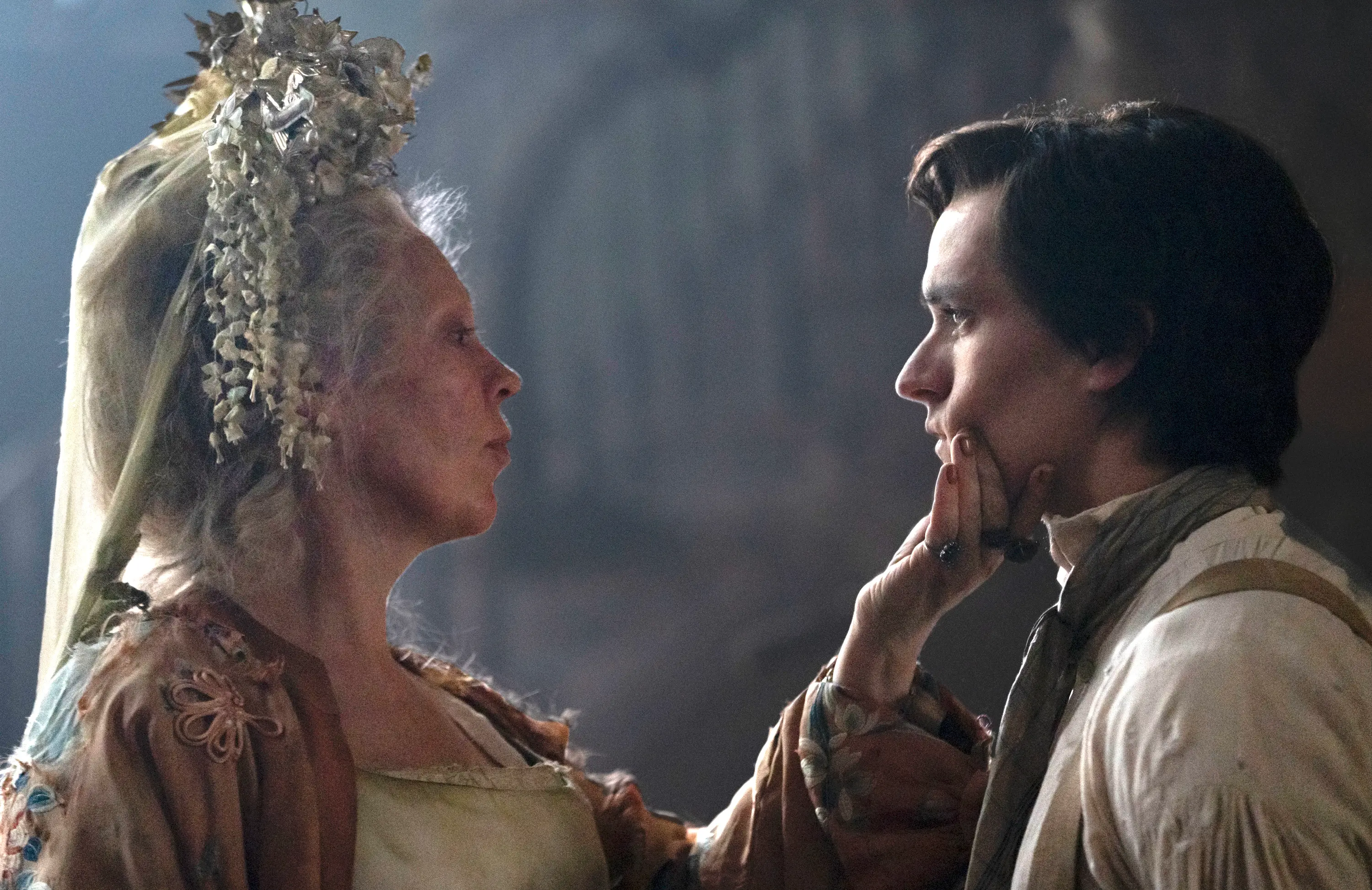FX’s Sinister Great Expectations Adaptation Makes Charles Dickens Feel New Again
-
 Olivia Colman and Fionn Whitehead in Great Expectations (Photo: Miya Mizuno/FX)
Olivia Colman and Fionn Whitehead in Great Expectations (Photo: Miya Mizuno/FX)Though it might be tempting to call FX’s new Great Expectations series a dark and gritty “reimagining” of the classic novel, that wouldn’t quite be accurate. Yes, Charles Dickens wrote with delicate language, but much of his work exposes the harsh realities of poverty, crime, and class divides. Writer-producer Steven Knight uses his new adaptation to reflect that reality of the source material, though with saltier language than Victorian censors would have allowed.
In fact, one could argue that instead of reimagining Dickens, Knight is actually correcting how modern audiences understand him. The passage of time seems to have softened the true meaning behind the author’s work. Some 200 years later, it’s easier to romanticize the Victorian era, making the plights of orphans and peasants seem quaint somehow and the evildoings of the richest citizens seem like character flaws in otherwise affable people. This is clear in how A Christmas Carol has evolved into the tale of a grumpy old man with a secret heart of gold and how Great Expectations has been interpreted as a romance or a comedy or an adventurous coming-of-age story.
This framing ignores the many brutal details that Dickens included. As he well knew, the Victorian Era was not a glamorous time for most, and those in the working class regularly witnessed death and devastation. Knight, who also wrote and produced a gothic version of A Christmas Carol in 2019, removes the rose-colored glasses.
The narrative stays mostly faithful to the original work. Young orphan Pip is living with his sister Sara (Hayley Squires) and her blacksmith husband Joe (Owen McDonnell). One night Pip crosses paths with an escaped convict, Magwitch (Johnny Harris), and shows him kindness that Magwitch won’t soon forget. The chance meeting launches a series of events that lead adult Pip (Fionn Whitehead) to meet the jilted bride Miss Havisham (Oliva Colman), the cold-hearted beauty Estella (Shalom Brune-Franklin), and the sinister lawyer Jaggers (Ashley Thomas). From there, he heads down the dishonorable and violent road to becoming a gentleman.
In Knight’s version of this world, the class divide is defined by what has made each subset miserable. Those downtown, the lower class, are overly burdened by the circumstances they were born into, looking for a way out. Those uptown, the upper class, have been completely corrupted by their station in life and long for a simpler existence. And everyone seems to be terrorized by spiritual ghosts — people who are just out of reach, either physically or emotionally, but hang over a character’s entire existence. Miss Havisham is haunted by the man who left her at the altar, Estella by Miss Havisham, Pip by Estella, and Magwitch by Compeyson (Trystan Gravelle), the man who led to his arrest.
Visually, the series is shot through a shadowy lens, and at times the story plays like a horror movie, complete with jump scares and haunting imagery. The costuming and makeup are muted and monotone. Colman in particular is the walking embodiment of a specter trapped in time, draped in her billowing wedding dress, weighed down by layers of pearls around her neck, pale and ghoulish in the face.
Colman’s performance is a prime example of how Knight can challenge modern assumptions about Dickens without doing much to alter the text. In most adaptations, Miss Havisham is a tragic character, moping and delusional, driven to insanity by her former lover. Here, Colman plays the character as grounded and empowered by her anger. She’s not lost in a fog of her former life: she’s choosing to put on this uniform every day, preparing for the battle to come, should she ever face her former lover again. Havisham is in control, and that makes her seem all the more evil.
Similarly, Thomas’ Jaggers is defined by his dastardly intentions. He’s the devil to whom Pip has sold his soul in an effort to win Estella’s heart, and he acts like it. Even Mr. Pumblechook, who would seemingly exist as comic relief (especially with Matt Berry in the role), reveals his own dark underbelly, quite literally. This is not a feel-good watch.
It is, however, an enthralling one. Despite some awkwardly forced optimism in the conclusion, the series succeeds as a work of suspense. Like a true mystery writer, Knight hooks our attention by teasing us with details that are clearly important, even if it’s not immediately clear why. The effect is entrancing. Even for those who know how the story ends, it can be captivating to see this brutal society’s intricate web get woven, then destroyed thread by thread.
Great Expectations premieres with two episodes on Hulu on Sunday, March 26, with new episodes streaming every Sunday. Join the discussion about the show in our forums.
Brianna Wellen is a TV Reporter at Primetimer who became obsessed with television when her parents let her stay up late to watch E.R.
TOPICS: Great Expectations, BBC, FX, Hulu, Charles Dickens, Fionn Whitehead, Matt Berry, Olivia Colman, Shalom Brune-Franklin, Steven Knight